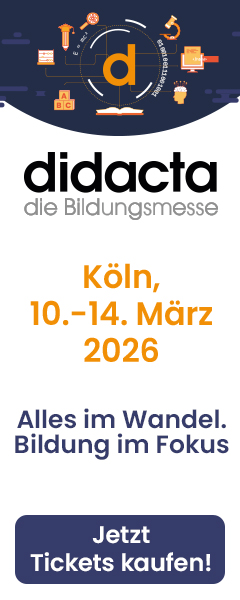Artificial Intelligence in Education
Berlin (GER), August 2016 - Artificial Intelligence (AI) can support learning processes – of this many AI experts are certain, and Roger Schank is one of them. He visualises a technology-supported learning process in which an AI mentor would appear to help learners whenever they get stuck or have a question. The cognitive psychologist and AI theorist will be one of the key speakers at the 22nd OEB, Europe’s leading conference in the realm of digital learning and training.
If Schank’s idea becomes reality, children will be able to explore their interests in an entirely new way and gain important experience in the process. "If you were ten years old and already aspired to be a doctor, you could practice on virtual patients. And if you made a mistake or needed help, you could get advice from real doctors." Of course, a virtual environment would be needed for this, but video sequences that actually applied to the situation and answered the questions asked would also be crucial. You can find out more about Schank’s ideas in his article on the OEB news portal.
Schank’s ideas represent the main topic of this year’s OEB: Owning Learning. "The aim is for the learners to take control of their own education”, says Rebecca Stromeyer, Managing Director of ICWE GmbH, the conference organisers. “Technology will fundamentally change the authority processes in education, and it will be the learners themselves who decide what, when and where they want to learn."
The use of Artificial Intelligence in learning processes is also the topic of the plenary debate, one of OEB’s annually recurring highlights. The opening proposition this year is "Artificial Intelligence can, should and will replace teachers". Just as in a parliamentary session, experts will argue for and against this proposal and at the same time discuss what opportunities and risks the use of AI in education would bring with it. At the end of the debate, the members of audience will express their opinions on the proposal via a show-of-hands vote.
Teachers are already gaining initial experience with AI in professional training and school-internal training sessions. The key term here is "augmented reality". One of these learning platforms will be developed within the WEKIT project, which Dr Ralf Klamma from RWTH Aachen will present at OEB. The acronym WEKIT stands for Wearable Experience for Knowledge Intensive Training.
The aim of the EU-funded project is to create an open learning-technology platform that gathers expert knowledge in order to pass it on to learners using a virtual expert in the desired situation. "Smart glasses" are just one example of WEKIT resources; they can be used, for example, when someone is learning to operate a new machine. The glasses evaluate what is being looked at, and a virtual hand indicates the buttons and switches that have to be used and in which order.
The potential of such an intelligent learning platform is clear; it could be used in real work environments, i.e. places where important questions often arise and advice is needed only after a traditional training session.
OEB takes place from 30th November to 2nd December 2016, and comprises sub-components dedicated to various sector-specific topics. Business Educa examines developments on global markets and their effects on the workplace and learning requirements; at Video Educa, the rapidly growing use of video and other forms of communication is addressed; and Future Educa scrutinises up-and-coming technologies and their effects.









